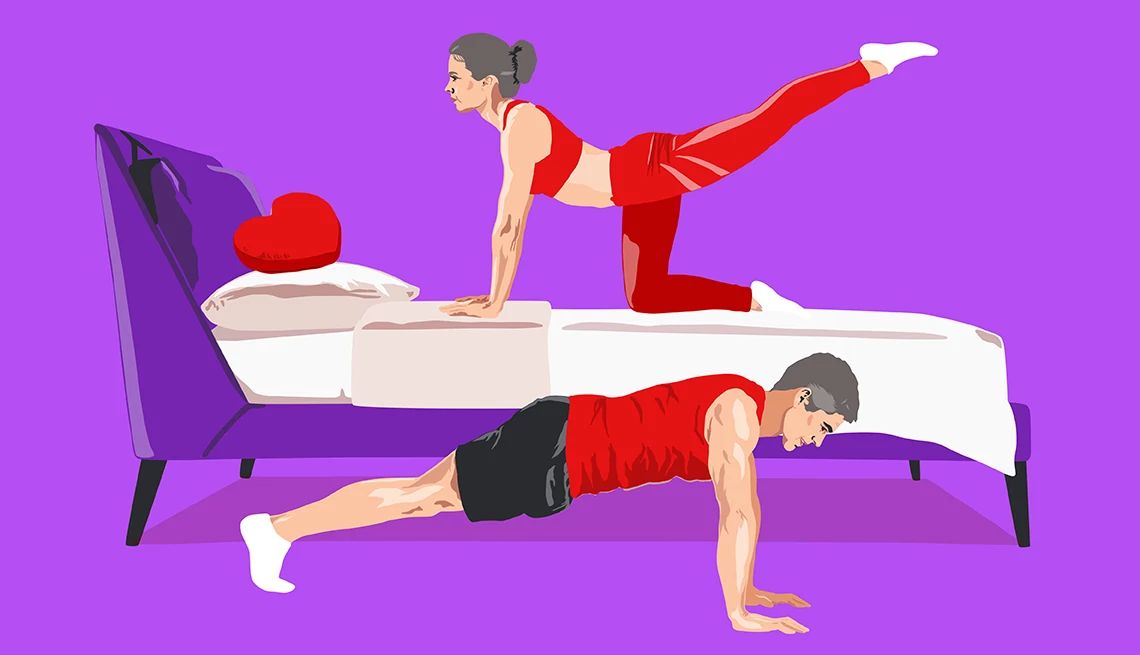AARP Hearing Center


After talking to experts for this week’s column, I think about sex every time I go to the gym. The guy in the corner killing that plank? That’s terrific practice for missionary sex. The modifications we learn in yoga class? A lot of them can be adapted for the bedroom. All those sweaty people pounding down water? Hydration, it turns out, can make good sex even better.
This week, our sexual wellness experts explain how exercise can help make you sex-ready. They also demystify a topic that can be difficult for a lot of 50+ couples to talk about: premature ejaculation.


In the Mood
For AARP’s In the Mood column, writer Ellen Uzelac will ask experts your most pressing 50+ sex and relationship questions. Uzelac is the former West Coast bureau chief for The Baltimore Sun. She writes frequently on sex, relationships, travel and lifestyle issues.
How much does exercise play into my sex drive?
“The stronger your body, the more stamina you have” in bed, says Susan Milstein, a certified sexologist through the American Board of Sexology. If that doesn’t get you into the gym, what will?


AARP Membership— $12 for your first year when you sign up for Automatic Renewal
Get instant access to members-only products and hundreds of discounts, a free second membership, and a subscription to AARP the Magazine.
And what are the best workouts for sex? To get started, consider the sex you want to have and then find the exercises that support it, says Allison Kent, a licensed clinical social worker who focuses on relationships and sex.
If you like to be on top in the missionary position, for example, planks that work the core can be helpful because they help build endurance, says Kent.
Also key to keeping the motor running during sex: cardiovascular and aerobic exercises like swimming, walking and elliptical workouts that get your heart rate up will improve stamina. As Kent puts it: “Healthy heart, healthy body, healthy sex.”
For greater comfort, yoga is all about moving your body in a way that works for you. Kent says modifications you learn in class can be adapted for sex play — along with accessories like foam blocks, pillows and straps.
































































You Might Also Like
I Just Got Ghosted and Feel Awful! And How to Date Without Apps
Experts answer the questions you are too embarrassed to askIn the Mood: Help Me Find Pleasure Without Penetration. And How Do I Talk to My Partner About Sex?
Experts answer the questions you're too embarrassed to askIn The Mood: What’s a Normal Amount of Sex? And Help, My Libido Is Kaput!
You know those sex questions you are too embarrassed to bring up? We asked the experts for you
Recommended for You